
File: Political thugs clash at a rally
With the 2027 general elections about 17 months away, the political atmosphere is already tense, marked by a disturbing rise in violence and thuggery. This wave of unrest is fuelling anxiety among political leaders, civil society groups and security stakeholders about what lies ahead for Nigeria’s fragile democracy.
In the past few weeks, multiple cases of political violence have been reported across different states. From Kaduna to Katsina, and from Kogi to Kebbi as well as Jigawa. In each of these states bar Katsina and Jigawa, the African Democratic Congress (ADC)-led opposition coalition has accused the ruling All Progressives Congress (APC) of orchestrating attacks on its members and activities. The APC, however, has repeatedly dismissed the allegations as baseless.
For Jigawa, it is a case of rival factions of the ruling APC attacking each other, while in Katsina, the state government was accused of masterminding violence against a group of respected elders who had gathered to deliberate on possible solutions to the escalating insecurity plaguing the state. Eyewitnesses claimed the meeting was violently disrupted, but state officials vehemently denied any involvement, insisting the accusations were politically motivated and intended to smear the government’s image.
Kaduna has also been in the spotlight. On Thursday, police reportedly invited former governor Nasir El-Rufai and other ADC leaders over an alleged criminal conspiracy. The summons followed disturbances at an ADC gathering which the party said was attacked by thugs linked to the ruling party. The ADC condemned the police move, accusing security agencies of being used as tools to intimidate and silence opposition figures, even while violent actors roam freely.
In Kebbi, former Attorney General of the Federation and ADC chieftain Abubakar Malami (SAN) was attacked in Birnin Kebbi. His convoy was reportedly ambushed in the GRA area of the state capital, leaving several of his supporters injured. Despite the attack happening in broad daylight, near a police outpost, no arrests have been made. Similarly, in Kogi, the ADC secretariat in one of the local government areas was vandalised by suspected political thugs.
Critics point out what they describe as selective deployment of security responses. They question why the police were quick to summon El-Rufai and his ADC colleagues in Kaduna, while suspects in the attacks in Kebbi, Katsina and Kogi remain at large.
Yet security analysts caution that the apparent bias is not always intentional. A retired senior police officer told Weekend Trust that law enforcement is often limited in how it responds to politically sensitive cases.
“When it comes to political matters, security agencies have always been constrained. From my experience, the police usually act only when directed by INEC or other higher authorities,” he said.
A retired director of the Department of State Services (DSS) added that Nigeria’s economic crisis has worsened the situation.
“Poverty and unemployment have turned security into a low priority for many citizens. With today’s harsh economic reality, people are ready to do anything as long as it brings money,” he explained, adding that this has made intelligence gathering even more difficult, as people who should cooperate with security agencies are often compromised.
Observers said the charged atmosphere is also being fuelled by the early commencement of political campaigns, despite the Independent National Electoral Commission (INEC) repeatedly warning parties and aspirants against breaching the electoral timetable.
Under the Electoral Act, formal campaigns are not expected to kick off until 150 days before the general elections. Yet, with over a year to go, both the ruling APC and opposition parties have been holding rallies, strategy meetings, endorsements, and media wars that resemble full-scale campaigns. Posters and billboards of presidential hopefuls have begun to dot major cities, while local party structures are openly mobilising support ahead of time.
Analysts noted that this premature mobilisation has intensified competition and created flashpoints for violent confrontations. It was further gathered that political thugs are being recruited early, while rival camps are increasingly clashing over control of public spaces, especially in states where opposition parties, which have majorly now morphed into the ADC, are attempting to challenge the ruling-party’s dominance.
They further noted that the recently concluded by-elections in several states further deepened these tensions. In Kano, Anambra, and Zamfara, among others, reports of intimidation, vote buying, and sporadic violence dominated the exercise. Civil society observers described the polls as a “dress rehearsal” for 2027, warning that if such levels of confrontation could occur in relatively small by-elections, the risks during nationwide polls could be greater.
Security experts argue that the by-elections emboldened political actors to test their strategies for 2027, including the use of thugs, propaganda, and legal manoeuvres. “What we saw in the by-elections is a warning sign,” a retired police officer said. “It shows that political parties are already in election mode, and are willing to push boundaries, regardless of INEC’s directives.”
The combination of premature campaigning and the volatile by-election experiences, stakeholders warn, is creating a combustible mix that could make managing the 2027 polls even more difficult.
History of political violence in Nigeria
Nigeria’s political history is littered with episodes of violence, with electioneering periods often marked by intimidation, ballot snatching, and deadly clashes between rival supporters.
One of the earliest was the 1964 general elections, which many historians describe as the bloodiest in the country’s pre-civil war years. The polls, marred by intimidation and killings, degenerated into the infamous “Operation Wetie” crisis in the Western Region, where political opponents were attacked and their houses set ablaze with petrol. The violence contributed to the breakdown of law and order that eventually paved the way for the military coup of January 1966.
In 1983, during the return to civilian rule under President Shehu Shagari, widespread electoral malpractice and thuggery were reported, particularly in Ondo State, where disputed governorship results triggered days of riots and arson. Scores of people were killed, while properties worth millions were destroyed. The election’s credibility crisis further weakened the Second Republic, which collapsed after a military coup later that year.
More recently, the 2011 general elections witnessed one of the deadliest outbreaks of post-election violence in Nigeria’s history. Following the announcement of Goodluck Jonathan’s victory, protests erupted in 12 northern states, leading to the deaths of more than 800 people, according to Human Rights Watch. Thousands were displaced, while churches, mosques, homes, and government buildings were destroyed.
The 2019 general elections also recorded significant violence. Incidents of ballot-box snatching, arson, and attacks on voters were reported across several states, including Rivers, Akwa Ibom, and Kano. Civil society groups documented at least 626 deaths linked to electoral violence between the start of campaigns in late 2018 and the swearing-in of elected officials in 2019.
One of the most tragic cases was the killing of Mrs Salome Abuh, the PDP woman leader in the Ofu Local Government Area of Kogi State. On November 18, 2019, just days after the governorship election, thugs attacked her residence and set it ablaze while she was inside. Abuh was burnt to death, a crime that drew national outrage and condemnation. Her killing became a stark symbol of how women are not spared in Nigeria’s cycle of political violence.
Even the 2023 elections, which introduced innovations such as the Bimodal Voter Accreditation System (BVAS), were not free of disruptions. There were reports of voter suppression, intimidation, and violent clashes in states like Lagos, Rivers, and Kano, raising questions about the effectiveness of reforms aimed at curbing electoral malpractice.
Political observers note that these recurring patterns show that Nigeria’s electoral culture remains fragile, thereby increasing the concerns over the early onset of thuggery and violence ahead of the 2027 general elections.
Opposition cries foul
On Friday, the ADC condemned what it described as state-backed intimidation of opposition leaders while violent attacks go unpunished. In a statement signed by its National Publicity Secretary, Mallam Bolaji Abdullahi, the party alleged that “at a time when terrorists and criminal gangs freely operate in large parts of the North, the Nigerian Police appears more interested in silencing opposition leaders than protecting citizens.”
“Every hour spent harassing El-Rufai and shutting down ADC offices is an hour not spent confronting terrorists and criminals destroying lives across the North,” it warned.
Similarly, the Peoples Democratic Party (PDP) cautioned that the ruling APC’s alleged resort to violence could plunge Nigeria into chaos.
Mallam Ibrahim Abdullahi, PDP’s Deputy National Publicity Secretary, described the attacks as “barbaric” and “disgusting as a principle of democracy.” He urged opposition parties to unite ahead of 2027.
“If you know you are proud of what you are doing, and if you know you are a popular government with the support of the citizenry, then there is no reason to resort to violence,” Abdullahi said. “By now, Nigeria should have grown beyond that. We must have tolerance for opposition if democracy is to survive.”
Former Vice President Atiku Abubakar also weighed in, warning of creeping authoritarianism under the Tinubu administration.
“The summons of Nasir El-Rufai and leaders of the ADC in Kaduna, the brazen attack on former Attorney General Abubakar Malami, and the violent disruption of the Katsina Elders Forum meeting on security reforms are not isolated incidents,” Atiku said, adding that “They signify a coordinated and dangerous assault on dissenting voices, civic freedoms, and the very essence of pluralistic democracy.”
He added, “Nigeria is dangerously close to slipping into authoritarian rule if these patterns of repression continue. No government that resorts to intimidation and uses security agencies as weapons against perceived opponents can genuinely uphold democratic principles.”
APC denies allegations
But the APC rejected the accusations, insisting that it has nothing to gain from fuelling violence.
The party’s National Director of Publicity, Bala Ibrahim, said in a telephone interview with Daily Trust that the ruling party stands to lose more than anyone else if the political climate turns violent ahead of the 2027 elections.
“The APC is a progressive party. We were once in opposition before coming to power, so we know the havoc that violence can cause and how it can derail democracy,” Ibrahim said.
“APC cannot support violence in whatever guise. What happened in Kaduna and other places where the opposition is accusing us is unfortunate. Politics should be played without bitterness, without rancour, and with tolerance.
“If you allow violence to start, you don’t know where it will end. And no party can claim a monopoly of violence. The APC is very much aware of this and will never support it,” he stressed.
He challenged the opposition to present evidence. “If the opposition has any proof that APC is behind the violence, they should not hesitate to bring it to the law enforcement agencies. Whoever is involved, no matter how highly placed, should be called to order.
“I can tell you that APC does not tolerate violence because it knows what violence can do to democracy. And as the party in power, we stand to lose more than anybody should the boat be rocked,” he said.
‘A recipe for anarchy’
Elder statesman and former presidential candidate Chief Chekwas Okorie described the disruptions and political violence as frightening and a dangerous omen for the nation’s democratic stability.
Okorie, who founded both the All Progressives Grand Alliance (APGA) and later the United Progressives Party (UPP), said such acts could provoke retaliation and push Nigeria into chaos.
“I read about the unfortunate disruption of the ADC meeting in Kaduna, and I was really scared that we are entering a stage that will not augur well for this country and our democracy in particular,” he said.
“When you see a political party arming itself just to hold a meeting or preparing to retaliate when those who offended them are meeting, that is a recipe for anarchy,” he warned.
On the way forward, Okorie argued that it was not only the National Security Adviser or the Inspector General of Police who should be worried, but the president himself.
“Democracy is not supposed to be violent at all. It is a game of numbers. Whatever message you have, you pass it to the people. If Nigerians believe in your social contract, they will vote for you. If they don’t, they won’t. But what we are seeing now is worrying. It has to be nipped in the bud. The APC’s denial of the allegations, to me, goes to nothing,” he said.
Analysts, security experts warn of grave impact
Dr Mohammed Alada, a political scientist at the University of Ilorin, said the spike in violence reflects Nigeria’s worsening economic reality.
“At this stage of our political process, people are already charged because of economic hardship, and it is very easy to mobilise them for whatever purpose the politicians want. A hungry person becomes a ready tool in the hands of politicians,” he said.
He added, “When people do not have a sustainable means of livelihood, they are ready to embrace anything that promises improvement. The average politician takes advantage of this by offering short-term inducements, even if it means recruiting them for violent purposes. So, we cannot separate the surge in violence from the economic reality of the country.”
Alada also argued that systemic hardship affects security agencies. “Before you are a security officer, you are first a citizen. Every citizen is facing the same hardship, and this affects commitment across all sectors. Many simply look the other way if they believe they can profit from it. It is not just about political interference but also a breakdown of commitment to national responsibility caused by frustration and hardship.”
He warned that unchecked frustration could destabilise governance. “When frustration reaches a certain level, it produces aggression, which can lead to political violence or even the overthrow of a government. Aggression is always a manifestation of frustration, and presently, frustration is very high in the country. To reduce this, the government must provide good governance, create hope, and reduce the desperation that drives people into violent acts.”
According to him, government silence is rooted in confusion. “What we are witnessing is that the government does not have those solutions readily at hand, and this creates confusion or even a sense of helplessness,” he said.
Another analyst, Aminu Yakudima, stressed that “People who perpetrate political violence cannot be allowed to go free. They must be brought to book. It is something the government should discourage, and something the electoral umpire must not tolerate.”
Dr Yusuf Olowolagba, a criminologist at Al-Hikmah University, Ilorin, noted that the country’s economic decline was fuelling violent survival strategies.
“If you look at the socio-economic climate, you will see that violence is becoming a route of survival, especially for the youth. Some go Into kidnapping and ransom collection, while those unable to join such networks turn to thuggery and electoral violence,” he explained.
He told Weekend Trust that “Electoral violence seems more sustainable, because if you are linked with a ruling camp, you may get protection or even pardon. Banditry is condemned universally, but electoral violence is excused by political association. Unfortunately, many of these crimes are overlooked or pardoned for political reasons. That is why young people are increasingly drawn to it.”
Olowolagba stressed that corruption, poor investment in security infrastructure, and political interference were major obstacles to effective action. “Sensitive information sometimes leaks to politicians. This weakens enforcement,” he said, warning that without urgent action, the situation could push the country into anarchy.
Ajayi Okasanmi, a retired police public relations officer and now a security consultant, told Weekend Trust that the recent surge in violence is directly linked to political realignments across the country.
“Political activities are picking up, and you can see people moving from one party to another, from one group to another. Such movements naturally come with tension. This explains why we are seeing more violence, especially in the northern part of the country,” he said. “It is part of the struggle that often occurs before elections and sometimes continues even after.”
Okasanmi, one of the longest-serving PPROs before retirement, stressed that it is not simply a matter of security agencies refusing to act.
“You see, when it comes to political matters, security agencies have always been constrained. From experience, police actions are often at the behest of directives from INEC or higher institutions. Even in the 2023 elections, suspects arrested for electoral offences were released almost immediately without prosecution,” he explained.
According to him, political interference leaves security agencies vulnerable.
“If they arrest one party, leaders later settle privately, claiming they are family, while the police are left in the middle of accusations. The truth Is, it is a political problem that requires a political solution,” he said.
He argued that officers are often punished for doing the right thing because of the influence of powerful politicians. “Until the law is allowed to take its full course, these issues will persist. If people knew they would face real consequences such as jail for ballot snatching or violence, they would not attempt it. But when offenders are repeatedly released without punishment, the cycle continues.”
Okasanmi emphasised the need for deterrence. “There must be consequences for every negative action. The coming election will be very competitive, and politicians will deploy all means, including violence, to secure victory. The government must therefore focus on political education, corruption reduction, and strict enforcement of the law.”
He further warned that excessive campaign spending fuels corruption and thuggery. “Today, some parties charge over N100 million for nomination forms, excluding campaign costs. This culture fuels desperation and violence. With the 2027 elections projected to be fiercely contested, the government must show strong willpower. Anyone caught in electoral malpractice must be punished, no matter their position.”
On government reluctance to act, he said, “Sometimes the government hesitates because decisive moves are interpreted by the opposition as using state security against them. This fear of backlash makes the government slow to respond. But history has shown us that violence during elections has claimed lives, such as in 2011 in Bauchi and even in 2023, yet very few were prosecuted. This culture of silence emboldens perpetrators.” (Weekend Trust)
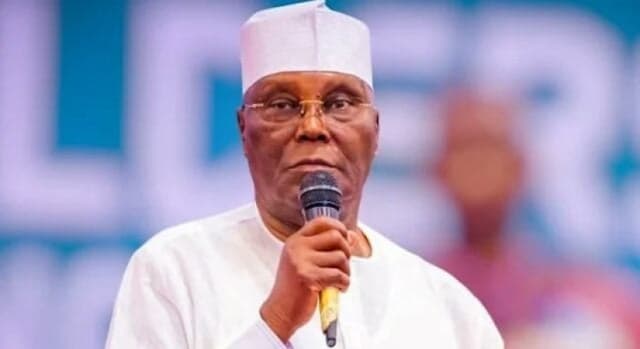
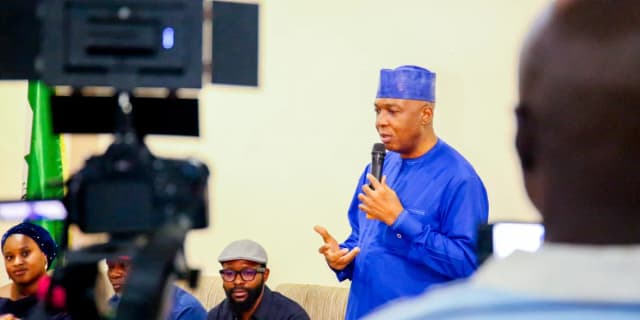
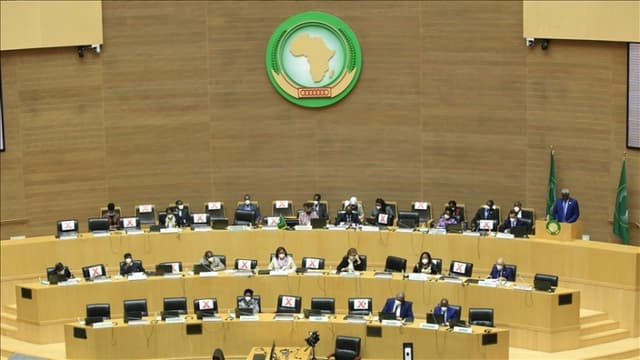




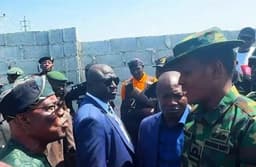
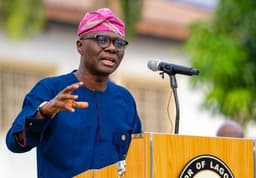













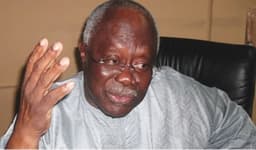
.webp&w=256&q=75)
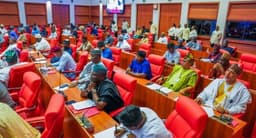
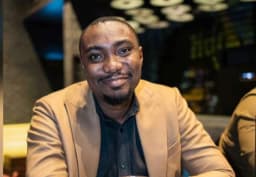

NEWS EXPRESS is Nigeria’s leading online newspaper. Published by Africa’s international award-winning journalist, Mr. Isaac Umunna, NEWS EXPRESS is Nigeria’s first truly professional online daily newspaper. It is published from Lagos, Nigeria’s economic and media hub, and has a provision for occasional special print editions. Thanks to our vast network of sources and dedicated team of professional journalists and contributors spread across Nigeria and overseas, NEWS EXPRESS has become synonymous with newsbreaks and exclusive stories from around the world.